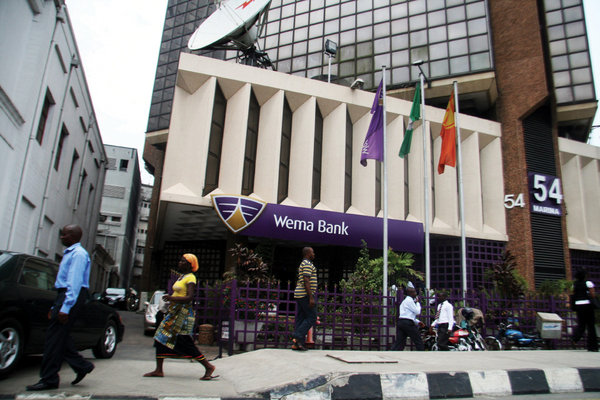Wema Bank Plc will on Friday meet with its shareholders at an extra-ordinary general meeting in order to get their consent to address the negative retained earnings in its books through a capital reduction.
Despite having returned to profitability, the bank still carries in its books, a negative retained earnings of N36.74 billion which arose from losses prior to June 2009 when the current management assumed office.
The bank in a statement at the weekend said it would hold an EGM this Friday, seeking the consent of its shareholders in a comprehensive Scheme of Capital Reduction pursuant to the procedures set out in Sections 105, 106, 107, 108, 109, 110, 111 and 120 of CAMA and Rules 4(d), 4(g) and 5(4) of the Company Proceedings Rules 1992.
The bank said it was pursuing the “holistic approach” to enable it position its balance sheet for better efficiency.
Though the Bank has since returned to profitability in the last 4 years, the implication of Negative Retained Earnings is that, the bank, by regulation, is precluded from providing necessary returns to providers of capital.
“We believe the completion of this exercise, would result in the plough back of subsequent years’ profits, aiding the continued growth of the institution, improvements in performance, particularly as it relates to the reduction in our cost to income and return on equity ratios while commencing the payment of dividend,” the bank stated.
Having transformed to a regional bank and back to national status playing in the retail banking space, Wema Bank, with its national authorisation has reemerged a stronger, more efficient, resilient and customer-focused organisation with a robust risk and governance structure.
The bank in the first half of the year had posted a N1.218 billion profit after tax, a slight improvement over N1.103 billion which it made in the first half of 2016.
Its total assets had however dropped to N385.988 billion as at June 30, 2017 compared to N424.043 billion which it was as at December 31, 2016 on reduced lending to customers.
READ ALSO: N26bn SME equity fund to be disbursed in Q4
Its total liabilities had also declined to N336.298 billion by the end of the first half of 2017 from N375.572 billion as at December 31, 2016 as the bank cut back on its obligations.
Its obligations on borrowed funds had dropped from N32.31 billion as at the end of the 2016 financial year to N24.67 billion.
Deposits from customers had also declined from N283.301 billion at the end of the 2016 financial year to N251.718 billion as at June 30, 2017.
The bank explained that the capital reduction scheme would have no impact on the current holdings of shareholders, though the bank will be creating a capital reduction account while an equivalent amount will be moved from its share premium account to effectively close the entries.
Following the consent of the shareholders, the bank said it would subsequently make an application to the Federal High Court for the approval of the scheme.











